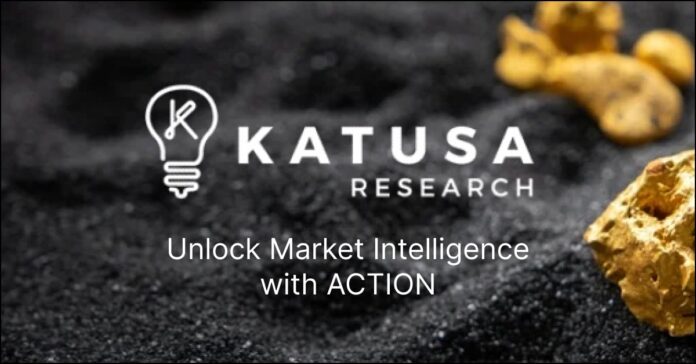The biggest earthquake on record is the Great Chilean earthquake of 1960. But recently, Chile’s government did its best to top that. Its sudden, unthinkable move is sending massive shockwaves throughout the lithium industry. It threatens to decimate the entire EV and battery markets, both of which are heavily reliant on a stable lithium supply. Chile is the second-largest producer of lithium in the world, and it has the world’s largest reserves. It also has the highest-grade lithium in the world.
So lithium’s new importance on the world stage has thrust Chile into a position of great power—or at least, that’s what it thinks. And recently, it decided to act on that. Socialist Chilean president Gabriel Boric announced the nationalization of the country’s entire lithium industry. In the next couple of years, the country’s two giant lithium producers, SQM and Albemarle, will be forced to cede majority control to the Chilean government. The last time this happened, in 1971, Chile took control of its copper mines through “negotiated nationalization”. The process was carefully designed to keep the peace with mining companies and their international investors. Within two years, “negotiated nationalization” became “nationalization without compensation”—what most people would call stealing. (It’s now widely referred to as “the Chileanization of copper”.) They’re transparently using the exact same process with lithium. In fact, state-owned copper company Codelco was commissioned to negotiate the nationalization of SQM and Albemarle. The government has stated that it is essential that Codelco—and by extension, the state government—be the ultimate controller of all lithium companies. The immediate fallout was swift. SQM, one of the two large lithium producers in Chile, lost more than $3 billion in market cap in a single day. But it’s the long-term consequences of Chile’s plan that will truly rattle the world. To support the nationalization, Chile has established the creatively named “National Lithium Company”.
- In a few years, a single company will control more than half of global lithium supply.
For reference, OPEC controls only about 40% of the global oil supply—and still controls the price. Chile will have complete price-setting power over lithium, and it will not hesitate to use that for its own benefit. And that’s exactly where the copper story took a dark turn. Chile’s “act of sovereignty” with copper led to a painful international economic boycott. President Nixon personally wrote: “Make [Chile’s] economy scream.” Chile found itself isolated from the world economy, and the government was overthrown in a coup two years later.
- The promise of wild instability will cause foreign investment to evacuate from Chilean lithium.
Imagine Albemarle, which spent $6 billion in 2016 to triple lithium output in Chile. Six years later, that investment is gone. No company is likely to follow in its footsteps.
Investment will shift to more mining-friendly countries, reshaping the global lithium market. Whenever the status quo is upended like this, there’s a profit to be made. All you have to do is follow the money. Where will the United States look to replace the 40% of its domestic lithium supply that comes from Chile? The so-called Lithium Triangle—Chile, Argentina, and Bolivia—contains two-thirds of the world’s lithium reserves. No other region in the world even comes close.
Bolivia has massive resources (not reserves)—more than half of all lithium resources in the world.
But Bolivia also has:
- Extremely low-grade lithium deposits,
- A hostile investment environment,
- Poor lithium-mining technology, and
- Zero major lithium companies or operations.
So despite pouring hundreds of millions into lithium evaporation ponds, Bolivia has produced a grand total of 1,400 tonnes in the past five years—less than .3% of global supply. Meanwhile, Argentina has ricocheted from possibly nationalizing its lithium to campaigning against mineral development to aggressively denying foreign investment. Most of Argentina’s brine operations have also not proven to be economical. The good news is, the Lithium Triangle is completely made up. In reality, it’s the “Arid Diagonal” that makes the west coast of South America ripe for lithium.
Parts of the Arid Diagonal are fifty times drier than Death Valley, making it perfect for lithium evaporation ponds. If you zoom in and look at where the actual reserves and projects are, there’s an outlier in the top left corner—making it more of a Lithium Rectangle.

That deposit is in Peru, one of the most mining-friendly countries in the world—and becoming friendlier by the minute.
If it’s hard to tell which country he’s talking about that is scaring investors, it’s Chile. Peru has an investor-friendly environment, an expansive mining sector (it’s the #2 copper producer in the world), an ideal location, and zero state-owned mining companies. And Peru has a free-trade agreement with the United States, meaning it can source lithium to U.S. auto manufacturers. That’s why, in an odd twist of fate, the Peruvian government is hard at work helping a private company get a $500 million operation off the ground. That company’s market cap is much less than $500 million—and that’s not even its biggest project. The flagship project is in Nevada, the ultimate location for lithium mining. There’s nothing better than extracting lithium in the U.S.’s own backyard—no AK-47s involved. Right now, Chile’s lithium earthquake is forcing every developed country to scramble for lithium supply. Countries are so desperate for lithium security that Bolivian officials have accused the CIA of orchestrating a coup just to gain access to the light metal. Which means a U.S.-based company with major projects in Nevada and Peru is likely to become a hot commodity in the very near future. Regards,Marin Katusa
Details and Disclosures
Investing can have large potential rewards, but it can also have large potential risks. You must be aware of the risks and be willing to accept them in order to invest in financial instruments, including stocks, options, and futures. Katusa Research makes every best effort in adhering to publishing exemptions and securities laws. By reading this, you agree to all of the following: You understand this to be an expression of opinions and NOT professional advice. You are solely responsible for the use of any content and hold Katusa Research, and all partners, members, and affiliates harmless in any event or claim. If you purchase anything through a link in this email, you should assume that we have an affiliate relationship with the company providing the product or service that you purchase, and that we will be paid in some way. We recommend that you do your own independent research before purchasing anything.




